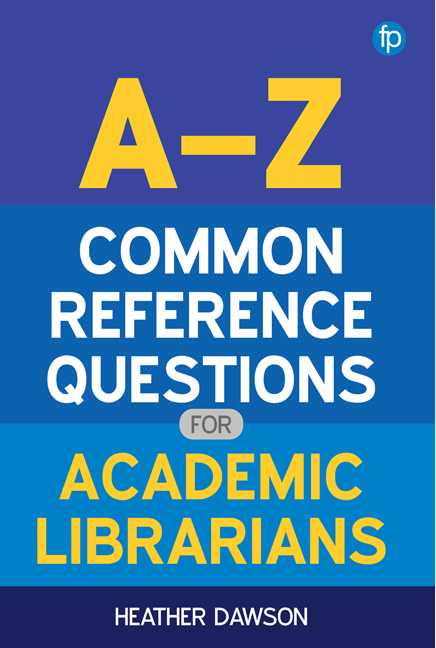Impact Measurement
Published online by Cambridge University Press: 19 March 2020
Summary
Typical questions
• Where can I find my H-Score?
• Which journals are the most highly cited?
Starting points
• Researchers and doctoral students are increasingly asking libraries for advice on maximising their impact. Typical areas to consider include creating an online presence, choosing which journals to publish in according to their citation rates and calculating individual citation scores using bibliometric tools. This is a fast-moving field and more resources are constantly being developed. Many universities have specialised research support teams who can assist. This chapter offers a general introduction to sources that can help.
• Also useful are the Current Awareness chapter, which has a sub-section on alerting services for conferences, and the Publishing chapter. The subject chapters list the main professional organisations. These usually guide academics to the most highly-regarded journals in their field and key conferences to attend.
Recommended resources
Online presence
Good general advice on enhancing academic visibility online includes:
• Joining networks such as LinkedIn (uk.linkedin.com), ResearchGate (www.researchgate.net) or Academia.edu (www.academia.edu).
• Creating an author profile on Google Scholar (scholar.google.co.uk) as this can be used to list publications and set up alerts when any are cited.
• Increasing the visibility of research by depositing publications in a university open access repository.
• Registering a standard author ID so all publications can easily be tracked and accredited. A key service that is widely used is ORCID (orcid.org).
Journal impact
Use these to find out which journals have high impact factors. Researchers should be reminded that none of these tools are comprehensive. They need to consult methodological and scope notes to consider subject, language and geographical limitations.
CiteScore
www.scopus.com/sources
A set of journal metrics calculated using citation data from Scopus. It is currently accessible free of charge.
Journal Citation Reports (Subscription)
clarivate.com/products/journal-citation-reports
Highly-regarded resource that sources information from journals indexed in the Web of Science core collection. Covers over 11,500 titles from the sciences and social sciences. Each journal entry enables users to track the citation frequency across time. Indicators available include: The Journal Impact Factor, which identifies the frequency with which an average article from a journal is cited in a particular year; 5-Year Impact Factor; and the Immediacy Index, which measures how frequently the average article from a journal is cited within the same year as publication. Data can easily be exported in charts and data files.
- Type
- Chapter
- Information
- A-Z Common Reference Questions for Academic Librarians , pp. 185 - 188Publisher: FacetPrint publication year: 2019



